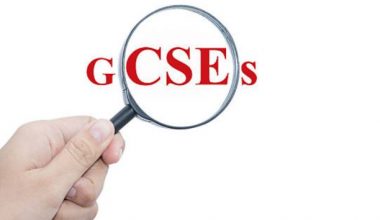When preparing for your GCSE English Language exam, knowing how to revise for English Language effectively can make all the difference. With focused practice and a thirst for knowledge, you’ll be well on your way to passing the GCSE English Language exam.
The key is to solidify your foundation. Understanding the assessment objectives – the specific skills tested in the exam – is essential. Brush up on grammar, punctuation, and vocabulary as the building blocks of effective communication. Then, practice!
In this guide, we’ll break down the process into simple, manageable steps to help you confidently explore comprehension, analysis, and writing.
Table of contents
What is the Structure of a GCSE English Language Exam?
To best understand how to revise for English Language in a GCSE exam, we first have to grasp the structure of the exam itself. The GCSE English Language exam typically comprises three main components:
- Reading: This section tests your comprehension skills. You’ll encounter various texts, such as fiction, non-fiction, or poetry, and answer questions to demonstrate your understanding of the content.
- Analysis: Here, you’ll delve deeper into the texts. You’ll be asked to analyze the writers’ techniques, identify themes, and discuss how these choices impact the reader.
- Writing: In this part, you’ll showcase your writing abilities. You might be asked to craft narratives, descriptive pieces, persuasive essays, or other forms of written communication.
Each component assesses different aspects of your English Language skills, from understanding written material to expressing your ideas effectively.
By familiarizing yourself with this structure, you’ll be better equipped to tailor your revision techniques to address each component’s demands.
Now, let’s explore how to revise for each component to maximize your chances of success in the exam.
Read: Is English GCSE hard? Achieve Your Goals With a GCSE English Tutor
How to Revise for English Language
Revising for GCSE English Language involves a strategic approach that covers all exam components.
- Reading Comprehension: To excel in this section, practice reading various texts. Focus on understanding the main ideas, themes, and author’s purpose. Work on summarizing content and answering questions accurately.
- Textual Analysis: Enhance your analytical skills by studying different writing techniques, such as imagery, tone, and figurative language. Practice identifying how these elements contribute to the overall meaning and impact of the text.
- Writing Practice: Develop your writing abilities by composing essays, stories, and articles. Pay attention to structure, grammar, and vocabulary. Aim for clarity and coherence in your writing while staying true to the task’s requirements.
- Time Management: Simulate exam conditions by taking timed practice tests. This helps you get accustomed to working under time constraints and improves your pacing during the actual exam.
- Review and Feedback: Regularly review your notes and previous work. Seek feedback from teachers, peers, or online resources to identify areas for improvement and adjust your revision plan accordingly.
- Mindful Revision: Stay organized, create a study schedule, and allocate time for breaks. Engage actively with the material through techniques like summarizing, mind mapping, or discussing concepts with others.
How to Revise for GCSE English Language
Effective revision for GCSE English Language is a crucial step to ensuring success in the exams. Many students spend hours revising, yet their results don’t reflect their efforts.
The key is revising smartly rather than simply putting in long hours. If you find yourself in this situation, here are five top tips for effective revision:
Practice Papers
Working on practice papers is one of the most beneficial ways to revise. These papers familiarize you with the exam structure and question types. While the texts may vary, the question formats will remain the same.
So, complete as many practice papers as possible to build confidence and refine your answering techniques.
Use Online Videos
Online videos can be incredibly helpful for revision. Platforms like YouTube offer various resources, including videos from past students and reputable educators like Mr. Bruff.
His videos and revision guides can provide valuable insights into understanding and analyzing texts effectively.
Know someone with a disability? Here’s How to Receive Extra Time For GCSE, A-Level and University Exams
Diversify Text Analysis
After completing past papers, don’t stop revising. Analyze different texts, even ones from novels you enjoy. Identify language and structural features, honing your skills in identifying literary techniques.
You can also explore exam papers from other boards to challenge yourself with new texts, but remember to focus on the unique question types.
Visual Stimuli for Writing
For the creative writing section, engage with various online images to quickly prompt story ideas and descriptions. This practice enhances your ability to generate imaginative content on the spot, a crucial skill for the writing exam.
Expand Vocabulary Through Reading
Reading might not feel like traditional revision, but it’s highly effective. Reading diversifies your vocabulary and exposes you to different writing styles.
This improved vocabulary can significantly boost your performance, especially in the writing section, where eloquent expression is key.
Here’s Why Many Fail GCSE Exams in 2024
What Should You Revise for GCSE English Language?
When revising for GCSE English Language, it’s essential to cover various topics and skills to ensure you’re well-prepared for the exam. Here’s a breakdown of what you should focus on:
Reading Comprehension:
- Practice reading various texts, including fiction, non-fiction, and poetry.
- Identify the text’s main ideas, themes, and key details.
- Understand the writer’s tone, style, and purpose.
- Practice answering comprehension questions like inference, analysis, and evaluation.
Textual Analysis:
- Study literary techniques like imagery, metaphor, simile, and symbolism.
- Analyze how these techniques contribute to the overall meaning and impact of the text.
- Explore the structure of texts and how it influences the reader’s experience.
- Develop the ability to discuss themes, character development, and narrative techniques.
Writing Skills:
- Practice various forms of writing, such as narratives, essays, letters, and articles.
- Focus on structure, coherence, and effective organization of ideas.
- Work on improving your grammar, punctuation, and vocabulary usage.
- Develop your ability to write persuasively, descriptively, and creatively.
Language and Style:
- Understand the differences between formal and informal language.
- Learn how to adapt your writing style to different purposes and audiences.
- Explore the impact of word choice, sentence structure, and rhetorical devices on the reader.
Spelling and Proofreading:
- Brush up on your spelling and proofreading skills to ensure accuracy in your written work.
- Pay attention to commonly misspelled words and homophones.
Time Management and Exam Techniques:
- Practice timed mock exams to improve your time management during the actual exam.
- Learn strategies for allocating time to different sections and questions.
- Develop techniques for tackling challenging questions and managing exam stress.
Vocabulary Enhancement:
- Read a wide range of materials to expand your vocabulary.
- Learn synonyms, antonyms, and context-based word meanings to enrich your language.
Practice and Review:
- Regularly practice with past papers and sample questions to familiarize yourself with the exam format.
- Review your answers to identify areas for improvement and refine your approach.
Also, read: Last-Minute GCSE Revision Tips| Score Higher In Last Minute
How Early Should I Start Revising for GCSE English Language?
Starting your GCSE English Language revision early provides a steady foundation and reduces the pressure closer to the exam. Beginning with a few hours of revision each week six months prior allows you to establish effective study habits without overwhelming yourself.
This approach gradually introduces you to the topics and concepts, ensuring a deeper understanding as you progress. As the exam approaches, intensifying your revision three months before with longer, more frequent study sessions capitalizes on the foundation you’ve built.
This strategy enhances retention, enables you to cover the syllabus comprehensively, and provides ample time for targeted practice and review before the actual exam, ultimately boosting your confidence and performance.
FAQs
Both approaches have merits. Revise alone to focus deeply on the material. Group study can help you discuss ideas and gain different perspectives.
Mix it up. Alternating between topics engages your revision and mirrors the real exam’s variety.
Use flashcards, create word associations, and incorporate new words into your writing to reinforce your memory.
Both have their place. Past papers help you understand the exam format, while revision guides offer a structured content review.
Conclusion
Mastering GCSE English Language revision requires a well-balanced approach. By starting early and gradually increasing your efforts, you build a solid understanding of the material. Regular practice, diverse study methods, and strategic time management will empower you to confidently face the exam and achieve the results you’ve been working towards.
References
- tutorright.co.uk – How can I revise GCSE English Language?
- lifemoreextraordinary.com – How to Revise for English Language GCSE
- teachwire.net – GCSE English Language revision
- targetapprenticiships.com – How to revise for English






